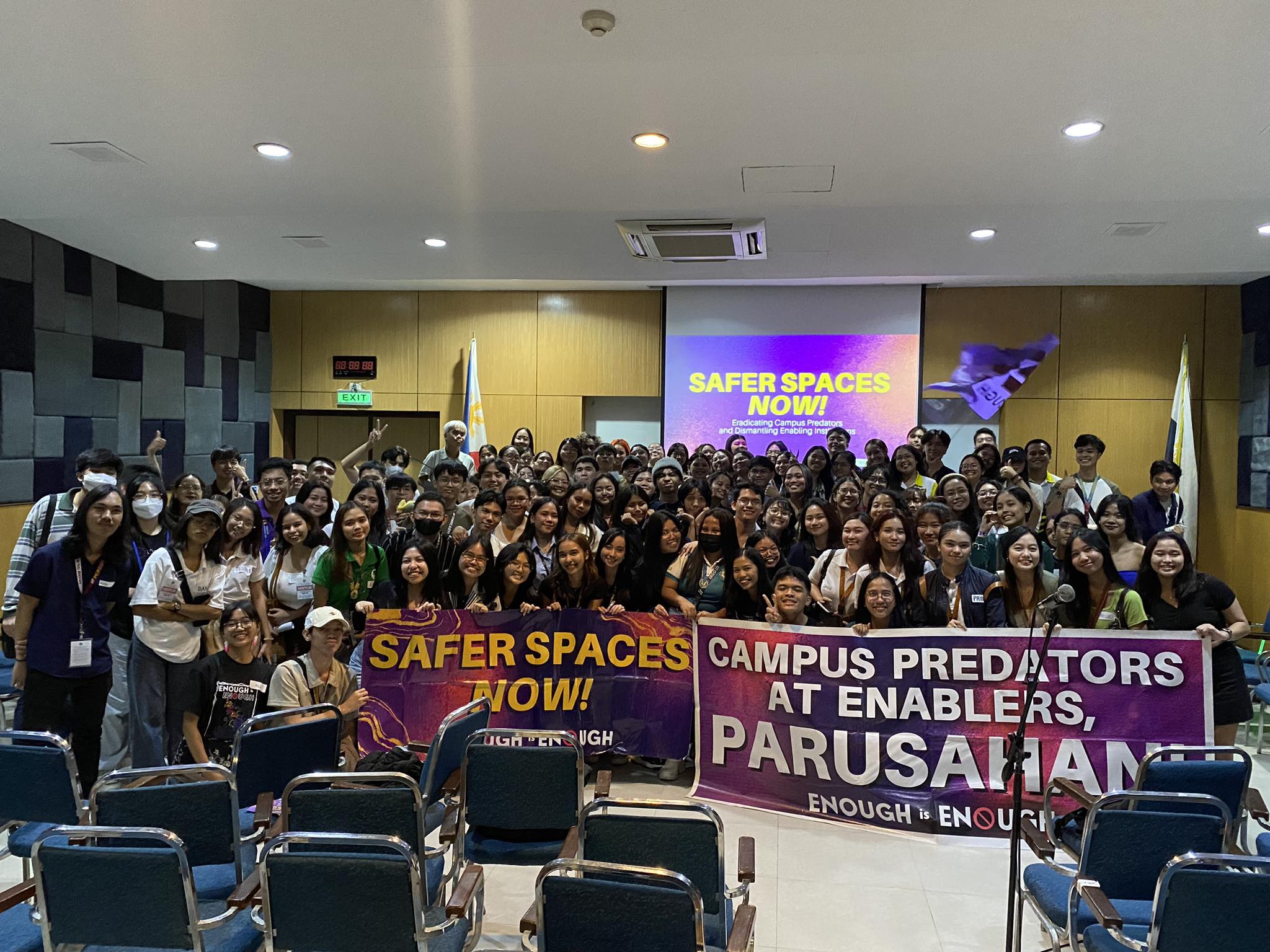'Bawal Bastos Law' does not guarantee safety, says youth group
Youth organization Enough is Enough (EIE) PH called for changes to the "Safe Spaces Act or Bawal Bastos Law," citing the numerous sexual abuse cases that have been dropped or left unresolved.

In a statement on Tuesday, Feb. 13, EIE said at least 61 incidents of "campus predators" had been reported, with many of those having yet to face the consequences of their actions.
In response, around 120 student leaders who are concerned about protecting students from sexual abuse and "enablers" gathered for a talk in which they promoted a coordinated response that demands "Safer Spaces Now."
EIE said together with the victim-survivors of sexual abuse were the champions for gender equality, as well as leaders of local student organizations, councils, campus publications, and gender groups, among others.
"The event has galvanized student-leaders in our readiness to respond to the withstanding issue of sexual abuse and harassment in our educational institutions. Cases have only continued to rise, and we have only grown more restless at the lethargic response of the DepEd and our legislators," said EIE lead convenor Sophie Reyes.
The group also said it demanded for the revision of the law suggesting that the schools should have mandates on the provision of psychological, legal, and financial support for victim-survivors; that the perpetrators will be imposed with criminal and administrative cases; that the campus predators will be revoked of professional licenses and be blacklisted; and that a publicly-available national registry of sex offenders should be established.
"Five years after the passing of the Safe Spaces Act, there is still no guarantee we are safe in our own schools, let alone any guarantee of justice sought by victim-survivors who share their stories, as if the stigma they face isn’t enough," Reyes said.
Moreover, EIE said a fresh suggestion was formed from the discussions, which was the "standardization of an anti-retaliation policy" to safeguard victim-survivors against predators and enablers.
"For as long as the status quo remains, where the media can continue to report cases of sexual violence and our national leaders can express their sympathy without taking any form of action, predators and enablers will remain more protected than the youth," said Reyes.